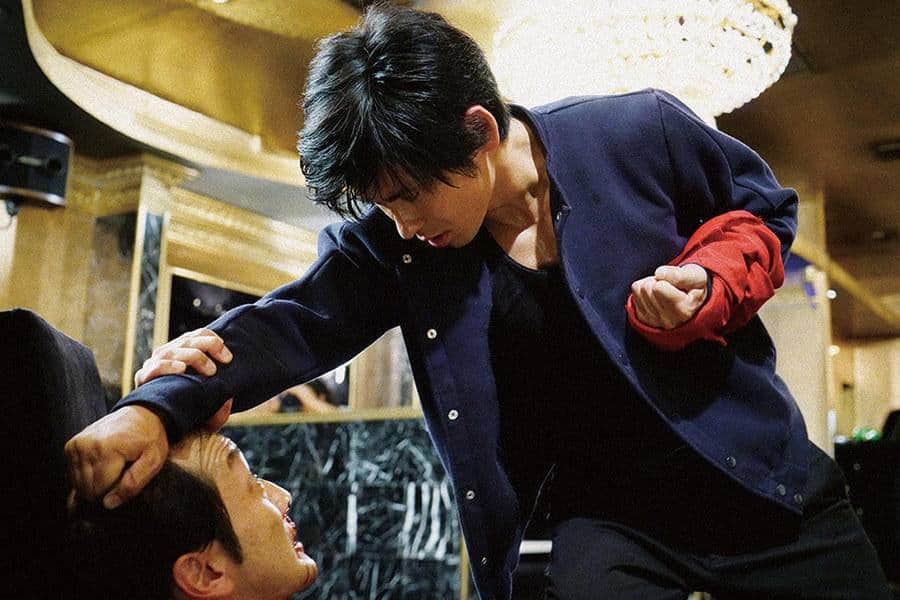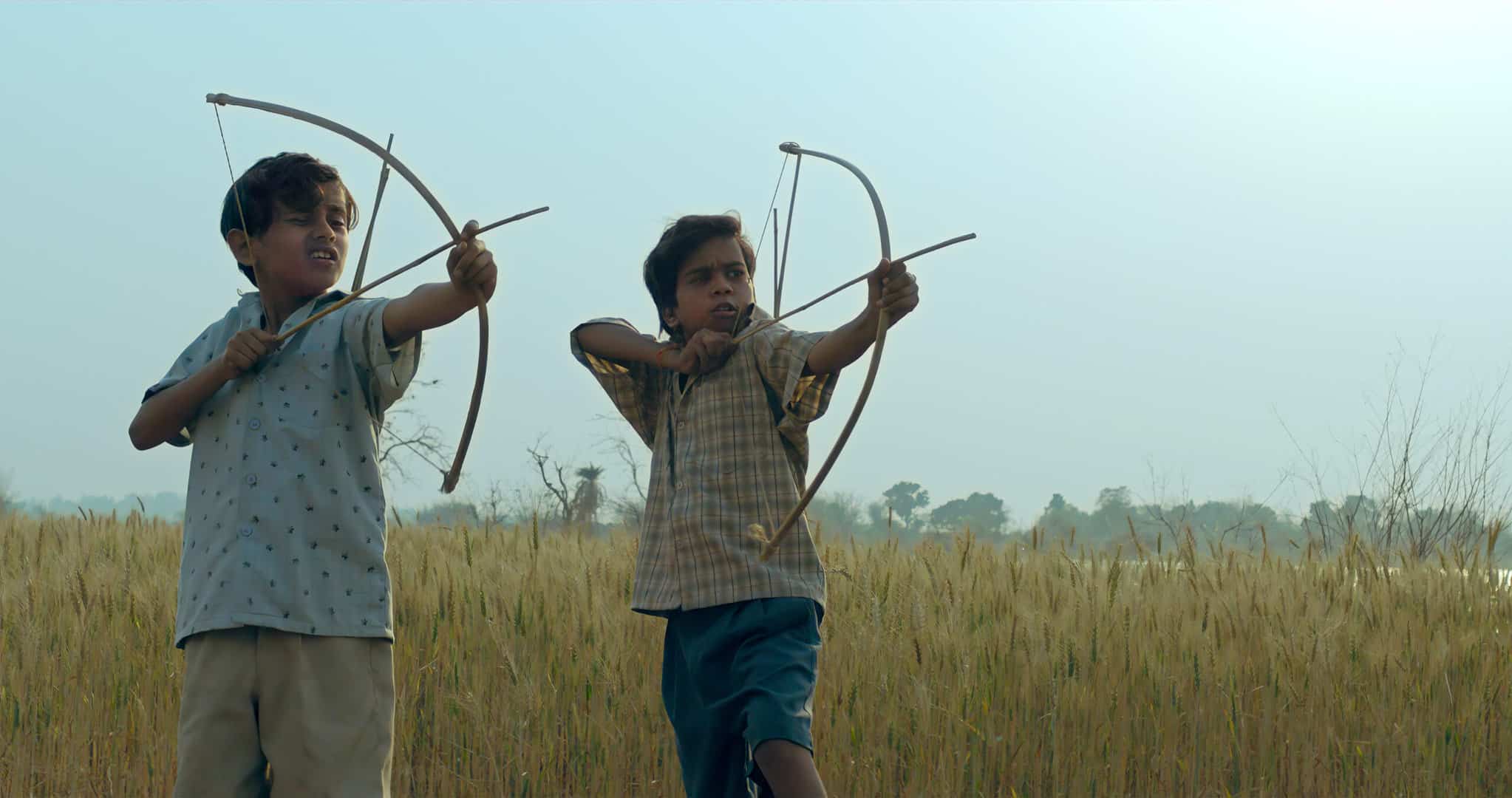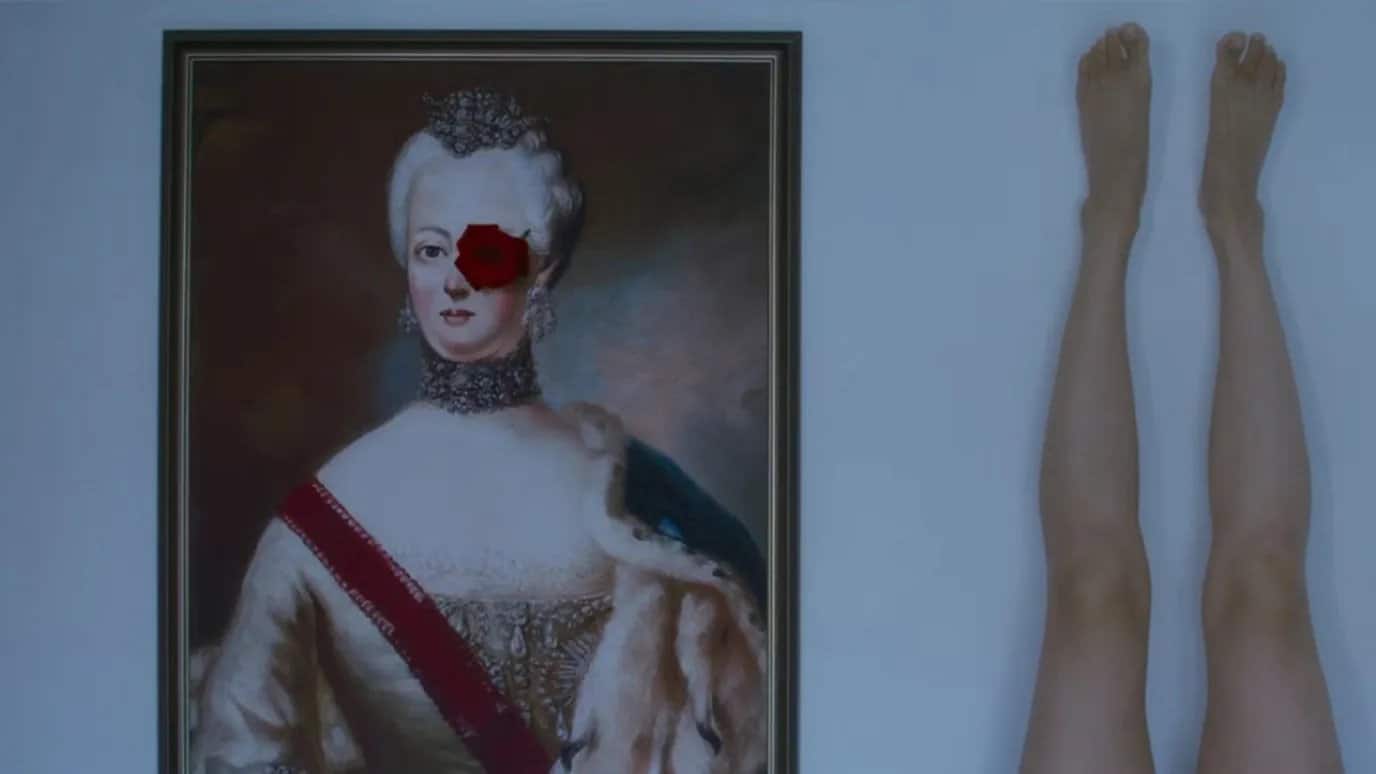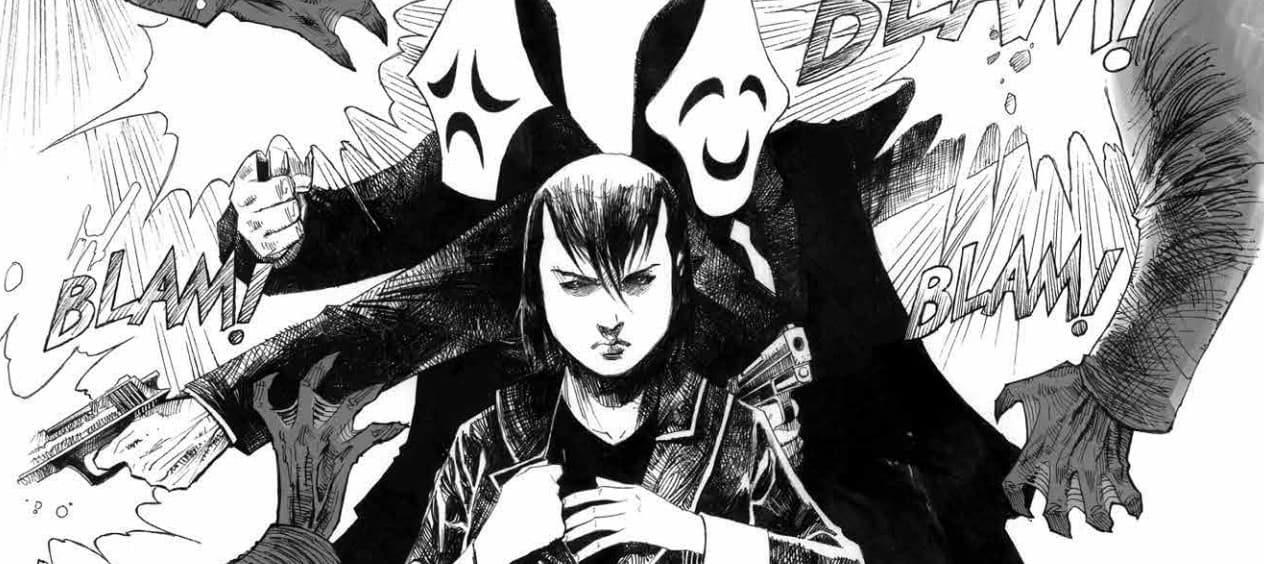The second genre, which used to dominate Hollywwod during the 80s and the 90s is not completely dead nowadays, but definitely placed in the background. However, the low budget, exclusively focused on action aesthetics still have their fans, and Kurando Mitsutake delivers a great specimen, which becomes utterly cult when combined with Japanese splatter notions.
Kenji is a martial artist who works four part time jobs in Japan in order to finance his sister's studying in LA. However, when she stops giving signs of life, Kenji decides to go to the USA to search for Mayumi. As he investigates, he finds out that she has started working as a hostess, until a cult named Capital Messiah, headed by a psychopath named Vandenski, kidnapped her in order to shoot one of the snuff films they offer to their subscribers. As Kenji tries to find out where they are hiding, he stumbles upon Keiko, an ex-victim of theirs that managed to get away and is now set on exacting revenge. The two of them decide to cooperate, as some feelings are also created between them.
Evidently, the script follows the norms of both genres, with the story actually being there to provide a background for the action. In that fashion, most of the film consists of Kenji fighting opponent after opponent, with a few breaks to show Capital Messiah's actions and a sex scene between Kenji and Keiko. However, that action is much more grotesque than what similar US productions usually offered. This trait is depicted eloquently from the first time Kenji fights a man, who ends up having his face filled crashed and filled with blood, while the sound heightens this sense even more. The exploitation element is also quite evident, with much nudity and women torture. Mitsutake also entailed some comic moments, although subtle and in the spirit of the rest of the film. The password scene and the one where Vendeski yells “cut” while the rest of his crew is shooting a scene and he is cutting his wrists are distinct samples.
The action scenes are quite impressive, with Mitsutake taking advantage of Hayate's prowess as a martial artist and the fact that he is also a parkour expert, to present a number of outstanding fighting sequences. The one that stands out, though, is definitely the one in the truck, where Kenji is facing a Japanese samurai.
Mitsutake did not give many lines to Hayate (who plays Kenji), and that seems to work in his favor, as the film focuses in his abilities rather than his acting. Asami is great once more as Keiko, in distinct exploitation fashion, and Kirk Geiger as Vandenski gives a hyperbolic performance that seems to fit the film's aesthetics perfectly.
Dean Harada's music is also on par with the 90's action film aesthetics, while Toshiuyki Imai in the cinematography, and Sam Yano in the editing and visual effects departments have done quite a good job, considering the film's limited budget. The same applies to the make-up and sound department, which are mostly responsible for the splatter elements in the film.
Evidently, “Karate Kill” is a b movie, exclusively addressing fans of both Japanese and American exploitation. Fans of these kinds of films, however, will definitely have a blast with the movie.















